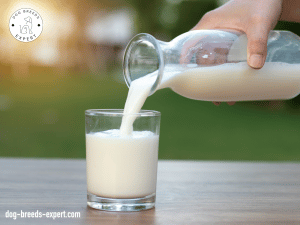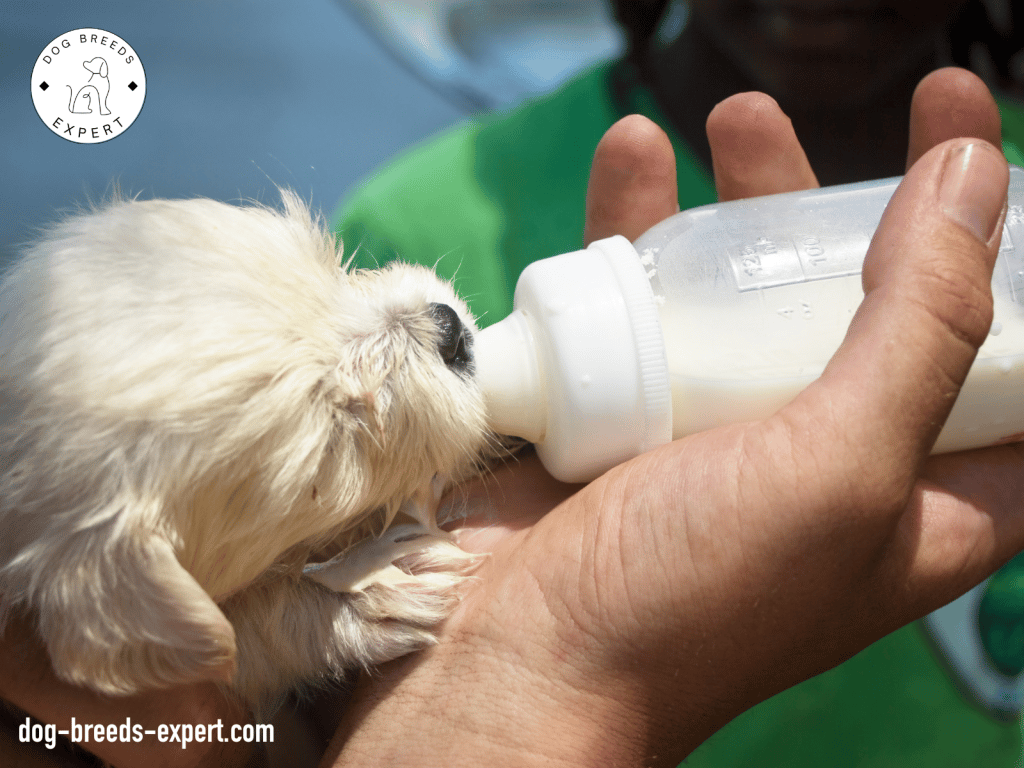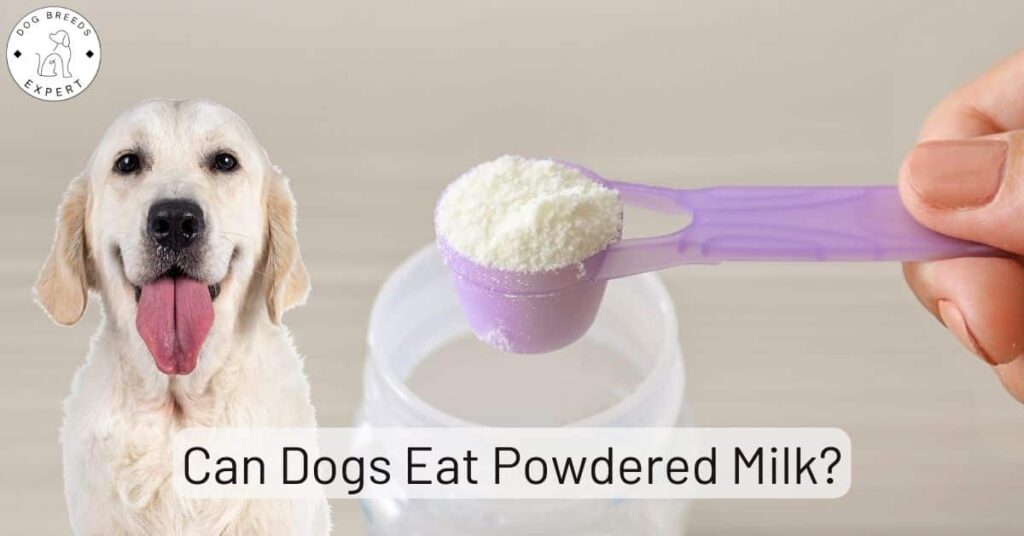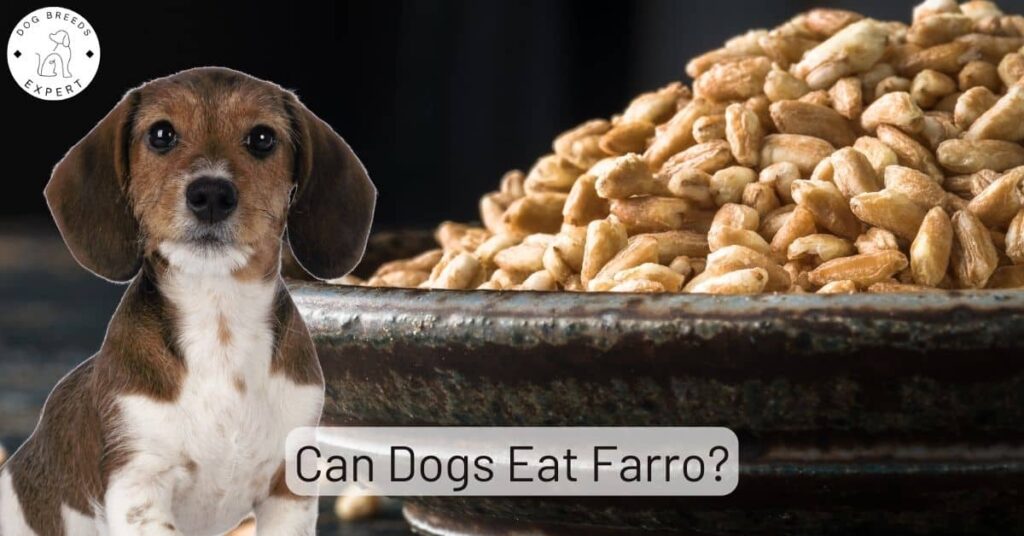
Powdered milk is an ideal replacement for fresh milk. It has the same vitamins and minerals. However, it differs from regular milk, which might leave you wondering ‘can dogs have powdered milk?’.
In most cases, powdered milk is made from cow’s milk. This milk is high in casein and lactase, which might be difficult for dogs to break down. Besides, powdered milk made for humans might not contain sufficient vitamins and minerals for your dogs.
However, that doesn’t mean that powdered milk is a big no for your dog. You can buy or make dog treats containing powdered milk. Just be sure to serve in moderation, but avoid it if your dog is lactose intolerant.
Nutritional Value of Treats Containing Powdered Milk
There is no harm in giving your dog treats that contain powdered milk. Bearing in mind that the main food group in your dog’s diet should be protein, powdered milk is not a bad idea. Your dog converts protein to energy, and since powdered milk is nutritionally similar to regular milk, the treat will boost protein intake.
Besides providing your dog with protein, powdered milk is also a good source of calcium. That goes a long way in ensuring that your furry friend has healthy bones and teeth. It also helps with muscle contraction and the transportation of nerve impulses.
While treats containing powdered milk can be helpful to your dog, it is always essential to get in touch with your veterinarian before introducing anything new to your dog’s diet. It is worth noting that some dogs are lactose intolerant, so they might experience a stomach upset if they consume milk powder. If you notice your dog has diarrhea or increased gas after giving it treats containing powdered milk, it could be a sign of lactose intolerance. However, it’s also possible that your dog is allergic to wheat grains. So, you can try substituting wheat with rolled oats or rice flour and see how that goes.

Another vital thing to keep in mind is the age of your dog. You must be extremely careful when introducing powdered milk to a puppy. Some milk products are not balanced enough to accommodate the particular needs of a puppy. However, you can find a puppy milk replacer in powder form. Check to see that the product is labeled as being formulated for puppies. If unsure, talk to your veterinarian first.
It is worth noting that powdered milk is different from dog milk as far as nutrients are concerned. Here is a list of nutrients contained in powdered milk:
- Protein
- Lactose
- Fat
- Calcium
- Phosphorus
- Vitamin A
- Vitamin B1, B2, B3, and B6
- Biotin
- Vitamin C
- Choline
- Energy
Health Risks of Powdered Milk to Dogs
Below are some of the health risks that powdered milk made from cow’s milk can pose to your dogs:
Digestive Problems
Your dog’s digestive system is not capable of efficiently digesting large amounts of fat. Since cow milk contains fat, your dog might experience bloating and gastrointestinal upset. Long-term effects include heart disease and swelling of the pancreas.

Lactose Intolerance
Many dogs lack the enzyme lactase, which makes it difficult for them to digest dairy products, including cow’s milk. If your dog is lactose intolerant, powdered milk can have effects such as abdominal pain, loose stool, and flatulence.
Weight Gain
Powdered milk is rather calorie-dense. Therefore, there is the risk of the calories exceeding your dog’s ideal daily limit. That poses the possibility of obesity in the long run.
Pros and Cons of Powdered Milk
Powdered milk has a few pros, though it has its fair share of cons. Let’s start with the good part.
Pros
- Long shelf life: Instant, no-fat dry milk powder can last for up to 12 months. On the other hand, non-instant dry milk powder can go for up to 18 months, although that can extend to two years if the storage conditions are ideal. It is always a good idea to store your powdered milk at under 80 degrees Fahrenheit and relative humidity of less than 65%.
- It is versatile: Powdered milk comes in handy when you have limited space or go off the grid, such as camping. That makes it an incredibly cost-effective option.
Cons
- Different taste and texture: You can notice the difference between regular and powdered milk even after mixing it with water. However, using it for baking treats can conceal the taste. Since you can give your dogs treats made with powdered milk, they will still enjoy it.
- Oxidized cholesterol: No studies outline how much oxidized cholesterol harms human or animal health. Besides, there are proven measures to reduce the oxidized cholesterol present in powdered milk. These include using low processing temperatures and using oxygen-proof packaging. Another way to reduce cholesterol intake is by choosing low-fat or non-fat powdered milk.
Alternatives to Powdered Milk
While powdered cow’s milk can be harsh on your dog’s digestive system, other types of milk work just fine. You can consider an option like almond milk since it is lactose-free. However, you should also serve it in moderation.
Oat milk is also lactose-free, making it safe for dogs in small amounts. Another option is soy milk, which is also ideal in small quantities. On the other hand, avoiding milk derivatives containing lactose, such as plain yogurt, would be a good idea.
How Should I Use Puppy Milk Replacers?

A mother’s milk is crucial for the growth of your puppy. But there are circumstances during which the mother’s milk is not available. In situations like this, you can get a puppy milk replacer.
When feeding your puppies, ensure they are lying on their stomach to mimic how they would feed from the mom. And don’t forget to burp them. After some time, the vet will give you the green light to move from bottle to bowl. This is also around the time you can start introducing solid foods. Remember to pick solid food formulated for puppies.



